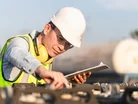How long will CATL’s battery manufacturing position remain?

It seems that China had the pick of the bunch until now. With more demand on electric vehicle (EV) battery manufacturers, as the number of sales grows, organisations are now looking to either fend for themselves—in the case of Tesla—or provide for their regions.
Although we are yet to see operations flourish in other areas of the world, CATL is seeing the market expand and its majority teetering on the edge, particularly as BYD steps up to offer more technologies and its own line of EVs.
It seems the current, and future, President Xi Jinping is curious about the long-term success of CATL as it looks to penetrate markets across the globe—much like how other organisations are approaching electrification.
China’s President expressed his concerns by saying “nascent industries should…figure out where the risks are and avoid penetrating deep into enemy territory alone, only to be caught by others and wiped out.”
This is seen as somewhat of a warning to the Chinese battery firm as the company experiences growing pressure from other regions. However, warding any uncertain behaviour from its customers—the likes of Li Auto, Huawei, and Nio—the company offered discounted rates to ensure their battery needs are met by the company and no other.
Alongside its China-based customers, CATL supports western clients, including Daimler, BMW, Volkswagen, and even Tesla. Also looking to be a customer of CATL is Ford Motor Group, which is in agreement with CATL to licence technologies to make lithium-iron phosphate batteries at a Michigan-based manufacturing facility.
Following the President’s comments about the company’s trajectory, CATL recorded a net annual income increase of 92.9%, totalling Rmb30.7bn (US$4.41bn) last year.
Why is EV battery manufacturing such a hot topic?
As automotive organisations transition from their old supplies for internal combustion engines (ICEs) to technology-based solutions, existing battery and technology manufacturers have been critical in the transition to zero-emissions vehicles so far. But in the long term, industry growth will make way for more leaders in this space as carmakers look to source their technologies locally.
However, the shift into technology from a traditional automotive background is no mean feat. Despite the expertise and investment in the industry, organisations are governed by supply chains, talent, and government support to decarbonise their operations.
An example of how authorities impact the industry can be seen with Volkswagen. With the EU putting a hold on certain activities relating to battery manufacturing, offers for expansion into the US not only meet its plans, but provide more financial incentives.
With interest peaked by the US, the EU could potentially put a hold on six localised battery plants, including those planned for construction in Hungary, Poland, Slovakia, and the Czech Republic.


